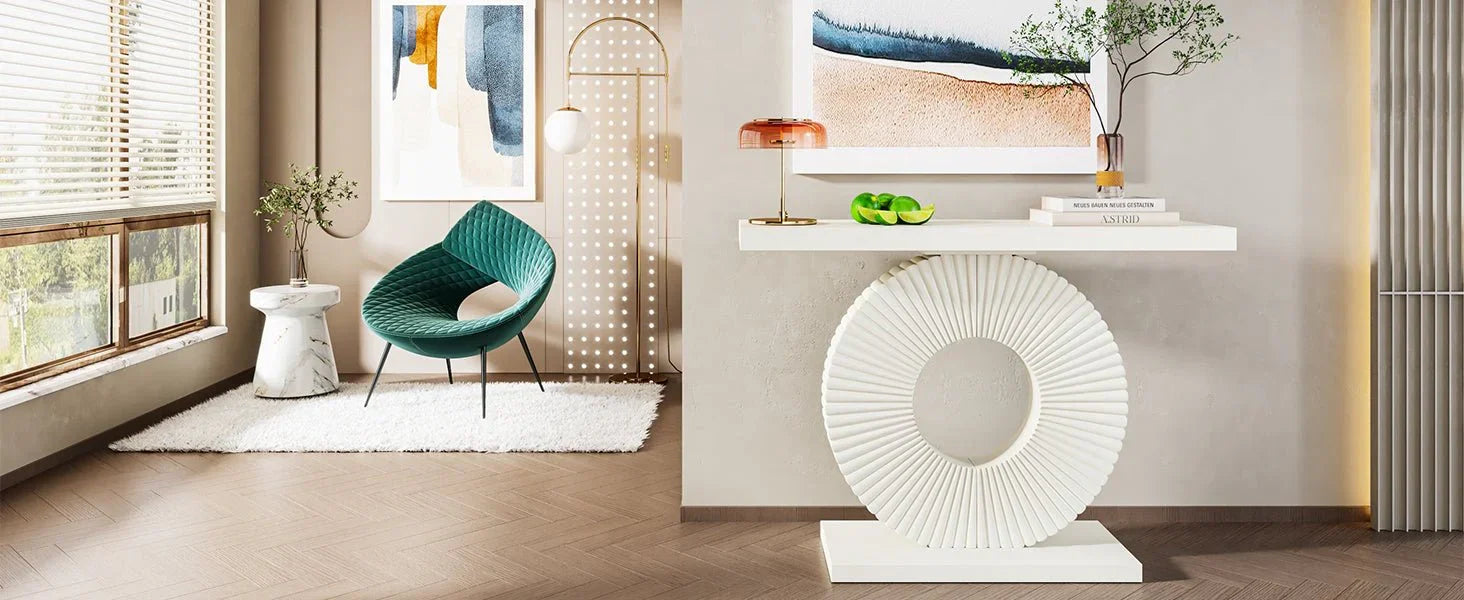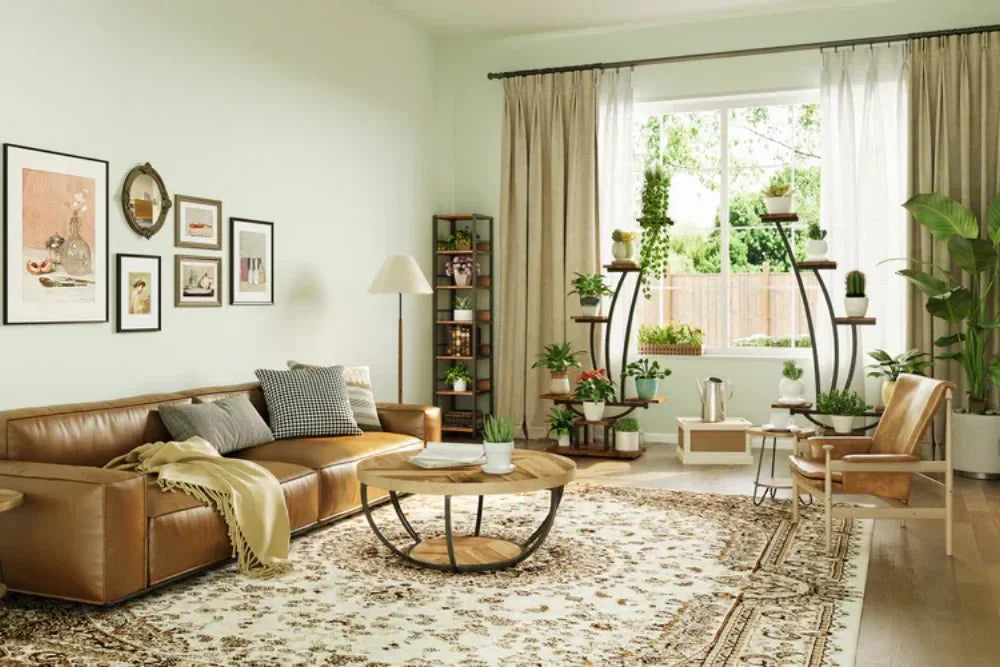Introduction
Selecting the right dining table material is one of the most important decisions in furnishing your British home. The perfect table not only serves as the heart of your dining space but also withstands daily life while complementing your interior style. From family meals to entertaining guests, your choice of material will determine both the practicality and longevity of your centrepiece furniture.
Solid Wood Dining Tables
For those seeking timeless appeal and natural character, solid wood remains the premier choice for British dining rooms. Hardwoods like oak, walnut and maple offer distinctive grain patterns and exceptional durability that improves with age.
Advantages:
- Unmatched longevity – can last generations
- Can be refinished to restore its original beauty
- Complements both traditional and contemporary interiors
- Develops a unique patina over time
Considerations:
- Requires protection from direct heat and moisture
- Higher initial investment
- Weight can make moving challenging
Engineered Wood & Veneers
These practical alternatives provide the aesthetic appeal of solid wood at a more accessible price point. Using a core of MDF or particleboard with a quality veneer finish, they offer consistent good looks without the premium cost.
Advantages:
- Budget-friendly while maintaining style
- Lighter and easier to reposition
- Uniform appearance throughout
- Ideal for rental properties
Considerations:
- Limited refinishing options if damaged
- Varying resistance to moisture
- Shorter lifespan than solid wood

Sintered Stone Surfaces
As a standout in contemporary furniture design, sintered stone combines natural mineral composition with advanced manufacturing to create surfaces that rival natural stone in beauty while exceeding it in performance.
Advantages:
- Exceptional resistance to heat and stains
- Virtually scratch-proof surface
- Wide range of design options
- Minimal maintenance requirements
Considerations:
- Substantial weight requires sturdy framing
- Higher initial cost offset by longevity
- Best suits modern interior schemes

Marble & Natural Stone
For those desiring unparalleled elegance, marble and natural stone tables make a dramatic style statement. Each piece is completely unique, with distinctive veining and colour variations that create a truly individual centrepiece.
Advantages:
- Breathtaking visual impact
- Classic sophistication
- Cool surface ideal for warm climates
- Increases in character over time
Considerations:
- Requires regular sealing and care
- Vulnerable to staining from spills
- Significant weight and cost
Quartz Tables
Quartz offers the aesthetic appeal of natural stone with enhanced practicality. Composed of engineered stone with resin binders, this non-porous material provides consistent beauty and remarkable durability for busy households.
Advantages:
- Completely non-porous and hygienic
- Consistent colour and patterning
- Resistant to scratches and stains
- No sealing required
Considerations:
- May lack natural stone's unique character
- Moderate to high price range
- Use trivets for very hot items
Glass
Glass dining tables create an airy, spacious feel perfect for compact British dining rooms. Their transparent quality allows light to flow freely, making smaller spaces appear larger and more open.
Advantages:
- Enhances sense of space
- Easy to clean and maintain
- Contemporary aesthetic appeal
- Tempered options ensure safety
Considerations:
- Shows fingerprints and smudges
- Requires careful handling
- Can feel less warm than other materials

Metal Frame Designs
Metal tables and metal-framed designs bring industrial charm and robust construction to dining spaces. From powder-coated steel to brushed aluminium, these options offer exceptional durability and modern style.
Advantages:
- Extremely sturdy and long-lasting
- Complements industrial and urban styles
- Easy to combine with other materials
- Low maintenance requirements
Considerations:
- Can feel cool to the touch
- May develop character marks over time
- Can be noisy with tableware
Choosing the Right Material
When selecting your perfect dining table, consider these key factors:
- Lifestyle Needs: Do you require family-proof durability or occasional elegance?
- Maintenance Commitment: Are you prepared for regular care or prefer wipe-clean convenience?
- Budget Considerations: Balance initial cost against long-term value
- Style Preferences: Ensure the material complements your interior design scheme
- Space Requirements: Consider both proportions and visual weight
Why Choose Tribesigns?
At Tribesigns, we understand that your dining table is more than just furniture—it's where memories are made. Our collections feature carefully selected materials that combine aesthetic appeal with practical performance. From sintered stone surfaces that withstand busy family life to solid wood designs that age gracefully, we offer solutions tailored to modern British homes.
Frequently Asked Questions
Which material is most durable for daily use?
Sintered stone, quartz and quality hardwoods offer the best long-term performance for active households.
What's the best choice for families with children?
Opt for scratch-resistant materials like sintered stone or quartz with rounded edges for safety.
Are glass tables practical for family dining?
Tempered glass is safe and easy to clean, though it may require more frequent wiping to maintain clarity.
How can I protect my wooden dining table?
Use placemats, coasters and avoid placing hot items directly on the surface. Regular conditioning helps maintain the finish.
What's the most low-maintenance option?
Sintered stone and quartz require minimal care while offering maximum durability.



